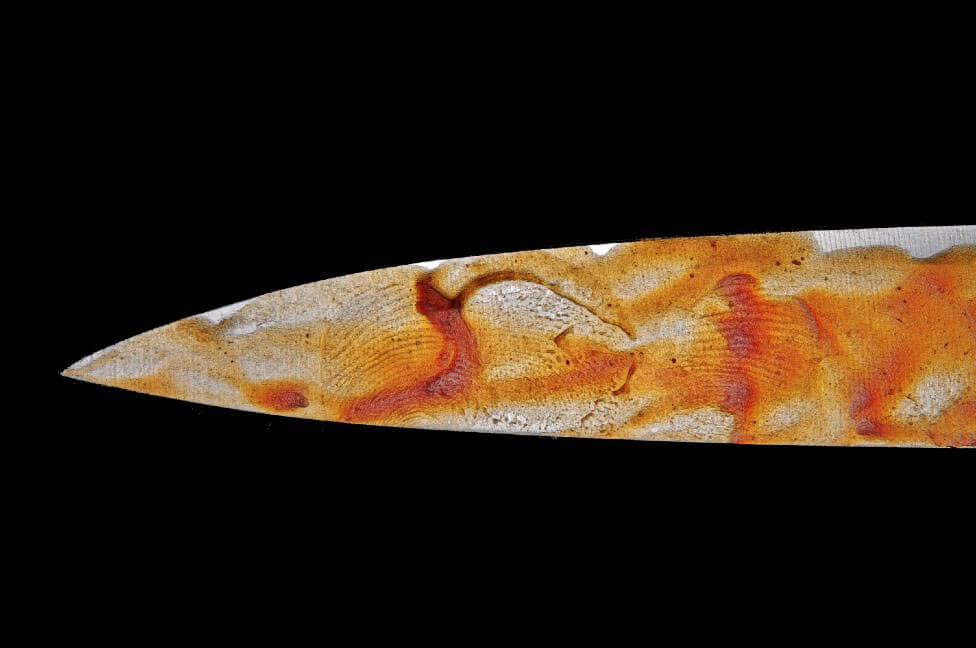Deciphering Distortions: Understanding the Causes of Fingerprint Variability
01/19/2024
by Kourosh Nikoui | March 23, 2023 | Fingerprints
The Anatomy of a Fingerprint
In the world of forensic science, fingerprints are one of the most reliable ways to identify people. Each fingerprint has unique patterns that make everyone different. However, fingerprint analysis is not always easy because various distortions can change the appearance of these patterns. Let’s explore the factors that cause fingerprint distortions and understand the complexities of forensic fingerprint analysis.
A fingerprint is made up of ridges, which are raised lines on the skin, and valleys, which are the spaces between the ridges. These ridges and valleys form patterns like loops, whorls, and arches, which are used to classify fingerprints and used as the first level of identification.
Varieties of Distortions
Fingerprint distortions can come in many forms, from minor irregularities to major changes that make the pattern hard to see. Some common types of distortions include:
- Pressure Distortions: These happen when too much pressure is applied to the finger, causing the ridges to flatten or smudge.
- Surface Distortions: Rough or textured surfaces can disrupt the ridges or fill in the valleys, causing distortions in the fingerprint.
- Matrix Distortions: These occur when the substance used to make the fingerprint, like ink or grease, interacts with the surface, altering the ridge details.
- Pliable Skin: The flexibility of the skin can also cause distortions. Factors like hydration, temperature, and age can affect the skin’s elasticity and the clarity of the ridge patterns.
Causes of Distortions
Several factors can cause fingerprint distortions, including:
- Pressure: The amount and distribution of pressure when the finger touches the surface can affect the clarity of the ridges.
- Surface Characteristics: The texture, composition, and condition of the surface where the fingerprint is made play a big role in the extent of distortion.
- Medium Interaction: How the fingerprint substance interacts with the surface can lead to changes in the ridge patterns.
- Environmental Factors: Conditions like temperature, humidity, and exposure to contaminants can impact how clear a fingerprint remains over time.
Mitigating Distortions
Although fingerprint distortions can be challenging for Fingerprint Experts and Forensic Investigators, several techniques and strategies can help reduce their impact:
- Advanced Imaging Technology: High-resolution imaging systems and digital enhancement software can help Fingerprint Examiners capture and analyze distorted fingerprints more clearly and accurately.
- Chemical Treatments: Special chemicals and solutions designed for specific types of distortions can help recover and analyze fingerprint impressions.
- Expert Analysis: Experienced Fingerprint Analysts and Forensic Experts have the knowledge to interpret distorted fingerprints accurately, using a mix of scientific methods and investigative techniques to get valuable information.
Conclusion
Studying fingerprint distortions helps us understand the complex interaction between human biology, environmental factors, and forensic science. By knowing the causes and types of distortions that can affect fingerprint impressions, Fingerprint Examiners can analyze fingerprints more precisely and confidently, ensuring justice is served and truth is revealed, one ridge at a time.
Forensic Investigator and Certified Specialist Kourosh Nikoui, Principal Consultant and CEO of Nikoui & Associates, Forensic Identification Services & Consulting, Inc. (https://www.nikouiandassociates.com), has over 38 years of full-time experience in forensic science and criminal justice with various law enforcement agencies, government and private entities. Mr. Nikoui, a court-qualified expert, is a Certified Latent Print Examiner, Certified Senior Crime Scene Analyst, and Certified Forensic Photographer by the International Association for Identification (https://www.theiai.org/). He has testified as an expert witness over 150 times in California Superior and U.S. Federal Courts, processed evidence in over 30,000 criminal and civilian cases, and served as a consultant to numerous law enforcement agencies. Mr. Nikoui holds a BFA degree from USD and is an active member of multiple forensic science organizations. He can be reached directly by calling (866)439-6753 or by email at [email protected].
